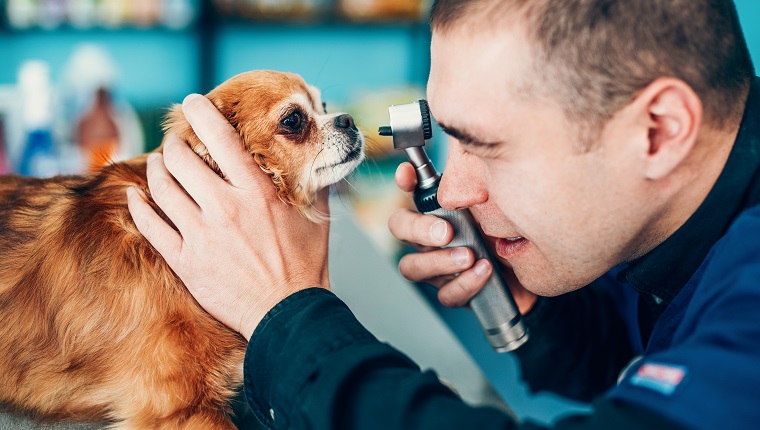Lens luxation in dogs is a medical condition that occurs when one of a dog’s lenses becomes dislocated. It can be categorized as either anterior luxation or posterior luxation depending on whether the lens falls forward or backwards respectively when it dislocates.
Dogs over the age of four seem to suffer from this condition more than younger dogs, and certain breeds, including various terriers, are most prone to developing it.
If you see signs that your dog might be suffering from eye issues, then you must consult your veterinarian for a proper diagnosis and advice. Here’s what you should know about the symptoms, causes, and treatments of lens luxation in dogs.
Symptoms Of Lens Luxation In Dogs
Lens luxation in dogs can cause a number of symptoms. Some of the most commonly seen symptoms include:
- Eyes becoming swollen and reddish
- Lens seeming to be abnormally placed
- Lens seeming to tremble
- Iris seeming to tremble
Causes Of Lens Luxation In Dogs

The cause of lens luxation in dogs can be a number of things. Some of the most frequent causes include:
- Presence of a tumor in the eye
- Glaucoma
- Uveitis
- Trauma
- Side effect of medication (including atropine)
Additionally, the following breeds of dog seem to be most at risk of developing this condition:
- Various Terriers (including Tibetan Terriers)
- German Shepherds
- Chinese Shar Peis
- Border Collies
Veterinary Treatments
If you suspect that your dog might be developing lens luxation, then your veterinarian will want to conduct a full physical examination of your dog, plus an eye examination.
Diagnosing the issue usually involves attempting to rule out other conditions that could cause similar symptoms, so the precise course of diagnosis can vary from case to case.
Once a vet has confirmed their diagnosis, treatment will often involve removing the dislocated lens through a surgical process. In some cases, vets may suggest an artificial eye as part of the treatment process.
While your dog recovers at home, they will need to be able to relax in a quiet and calm environment. Exercise should also be kept to short, leashed walks at first. Your vet can advise you on a suitable and safe timescale as your dog returns to full health.
Has your dog developed lens luxation? What steps did your vet take to help your dog recover? Tell us all about it in the comments below.







